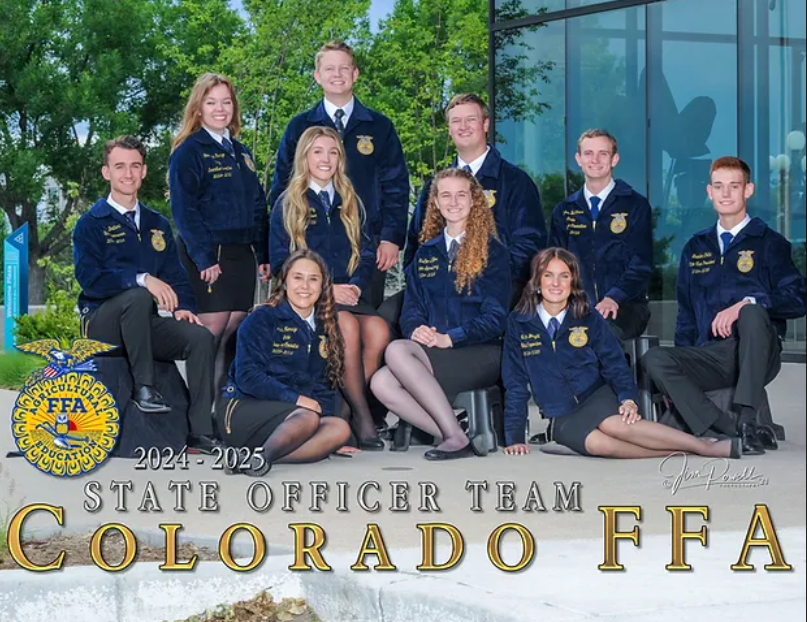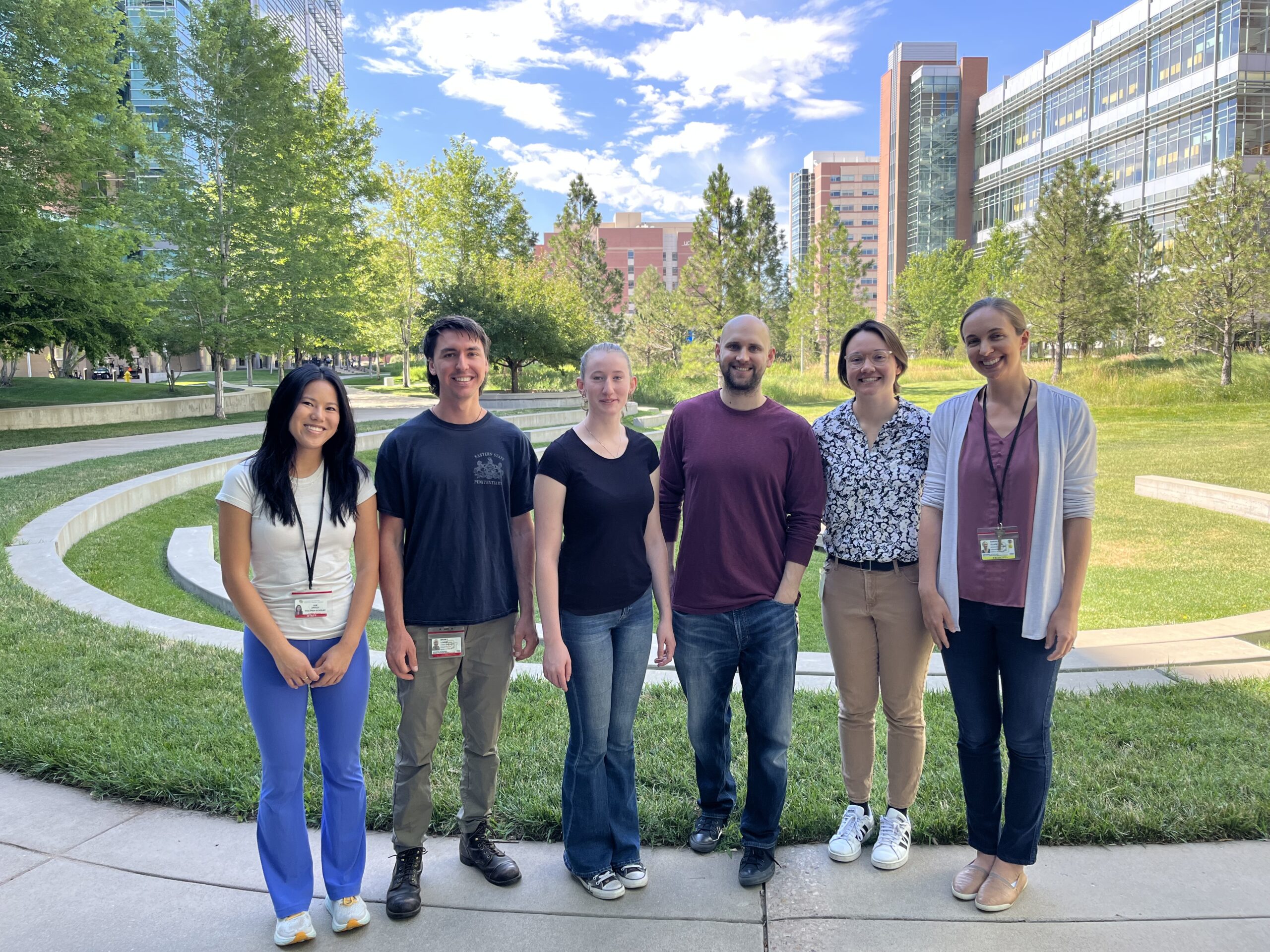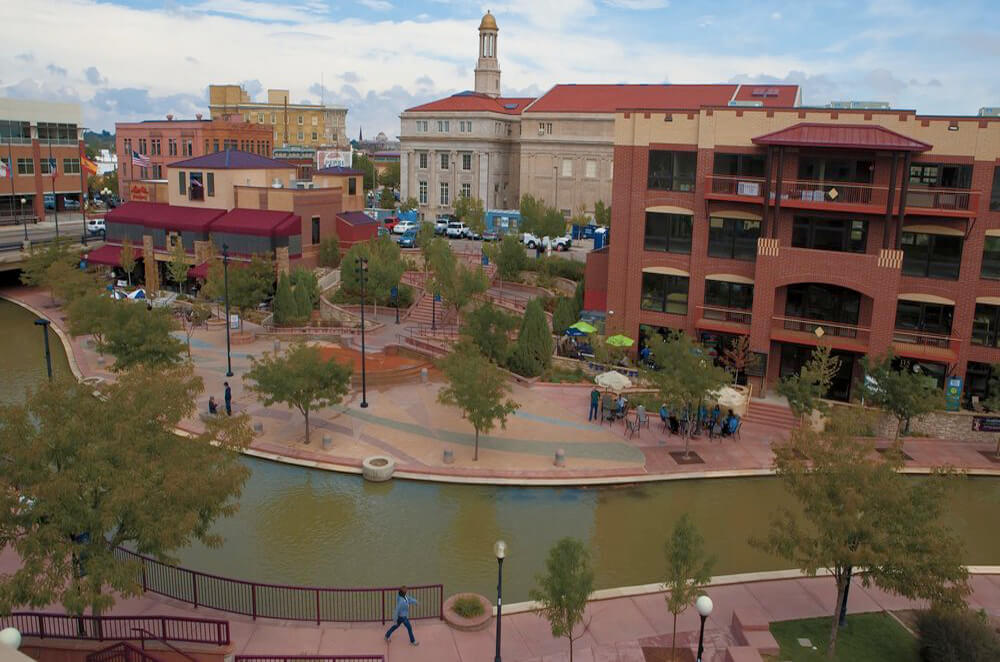For nearly a century, Colorado FFA, formerly Future Farmers of America, has sown the seeds of leadership, personal growth and career success in young Coloradans. Beyond the iconic blue jackets and students, the organization is shaping communities and preserving Colorado’s agricultural heritage.
Colorado FFA understands the power of investing in young leaders to spark a ripple of change that makes Colorado a better place for everyone, regardless of their background.
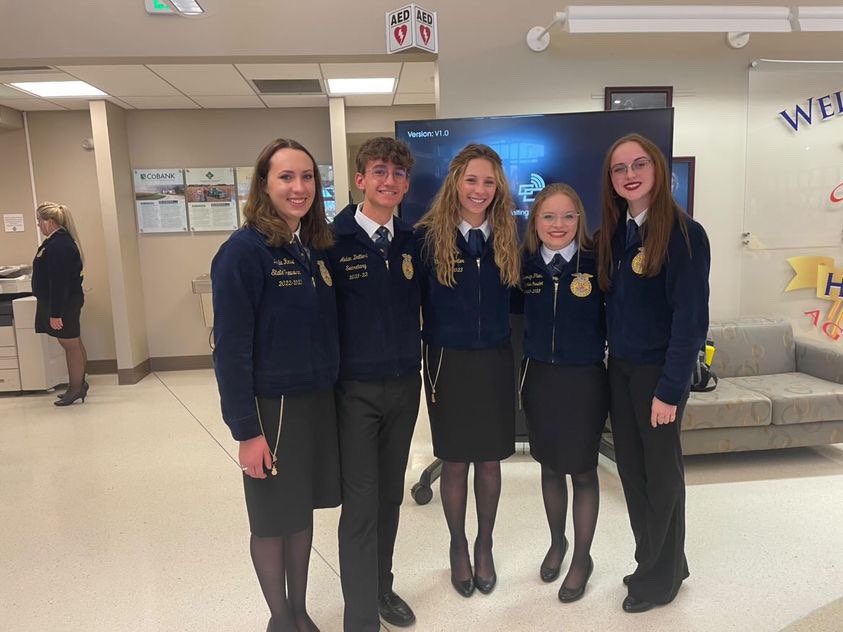
“A huge part of being a leader is learning to listen and understand different points of view,” said Sydney Cure, FFA State Officer 2022-23 and 2022 Boettcher Scholar. People have different experiences. How cool is it that we get to learn about others’, discuss our own, and try to meet in the middle.”
Being an FFA State Officer is a big commitment – it means taking a gap year between high school graduation and college and dedicating yourself to leadership development and mentoring students across the state.
Current FFA State Officer and 2024 Boettcher Scholar Aidan Datteri says that commitment is more than worth it. “I am a third generation FFA member. I just knew I’d be in the blue jacket myself one day,” he said. “I am proud of the program in Colorado – a lot of states don’t have the same system of a gap year.”
Datteri and his nine fellow state officers live and work together at the CSU Spur campus in Denver, which Datteri describes as “a community center that can be a hub for everyone.” While there, the students work together on professional development and create curriculum that they take across the state to teach rural and urban students the history and importance of Colorado agriculture.
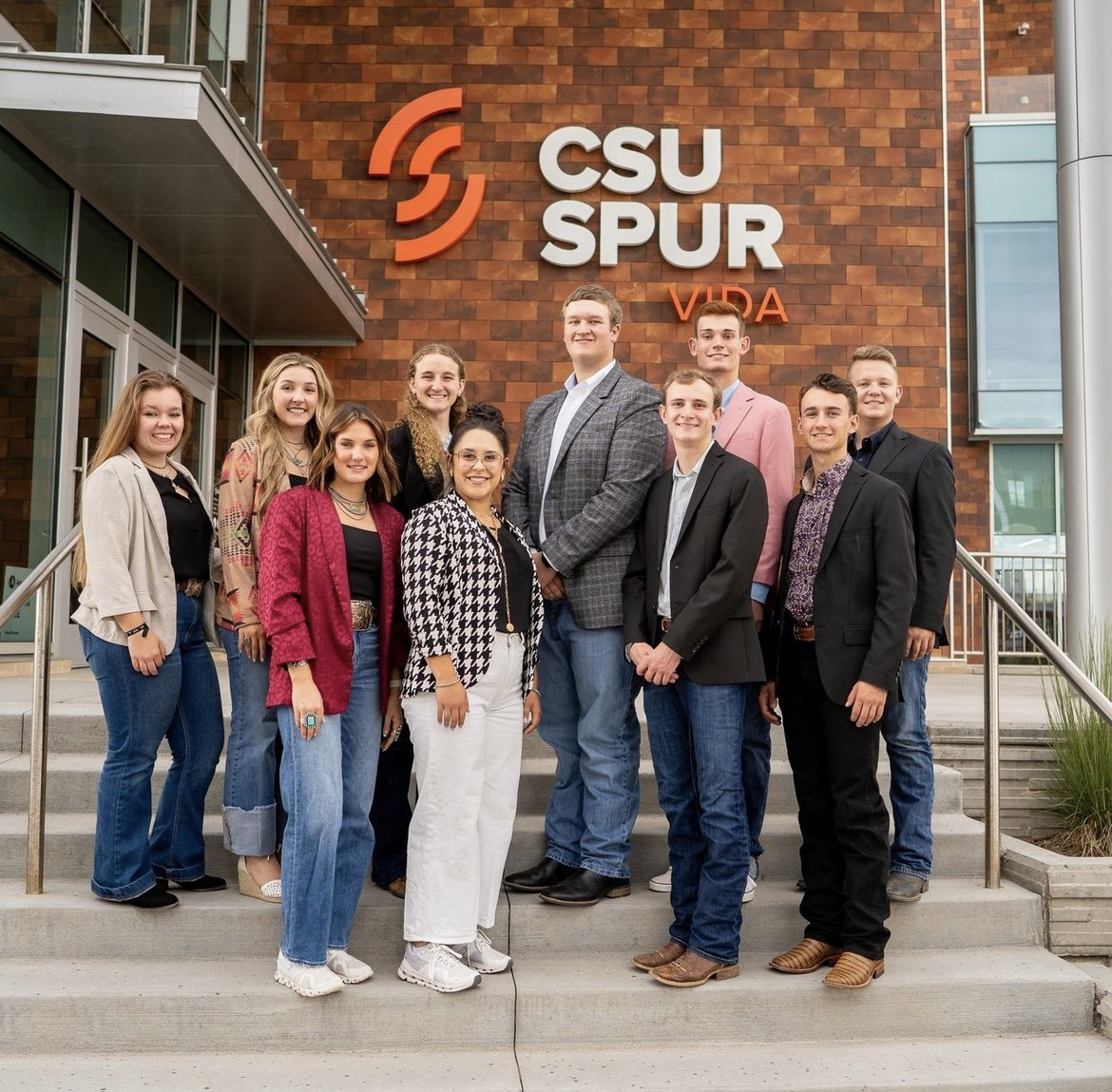
State officers also assist CSU Spur with programming, events, and agricultural advocacy.
This immersive experience provides access to state-of-the-art facilities like the Food Innovation Center, which supports food and agricultural innovators in bringing new products to market; and allows the state leaders to tackle modern challenges to meet the evolving needs of the industry and prepares them for careers in emerging fields like ag tech and sustainable farming.
“We have such diverse agriculture in Colorado,” Cure said. “Peaches on the Western Slope, famous Olathe corn, melons in southeastern Colorado, and of course, cattle are our number one commodity. And, Colorado is a headwater state, but many people don’t realize what that means for them.”
FFA helps Cure and the other state leaders ask critical questions with this perspective in mind: How do we educate people? How do we build community while feed a growing population?”
For Cure, the meaningful relationships she’s formed with both her fellow officers and youth members are just as transformative. She recently partnered with the Boettcher Foundation to lead a workshop during the annual convention about applying for college scholarships.
The Boettcher Foundation has supported several of FFA’s initiatives, such as its youth leadership programming, including the state conference and student housing. The Foundation has also supported Colorado FFA’s Local Techer Success Program, which aims to increase retention and equip educators with tools to bring Colorado’s rich agricultural history to life for their students through classroom and experiential learning. In the past, teacher shortages meant that many communities were at risk of losing their agricultural education programs if a teacher left the field.
This is something Cure experienced personally. While she was in high school in Burlington, her ag teacher moved away, putting her favorite class and extracurricular activity at risk. Fortunately, a community member stepped in, allowing Cure and her classmates to continue the activity they’d already invested so much in.
But many rural schools are not that lucky, which is why Colorado FFA’s initiatives are so important. John Stahley, executive director of the Colorado FFA Foundation and former local teacher success coordinator, highlights this need: “While less than 2% of the U.S. population is involved in production agriculture, over 10% is directly related to food and fiber production, and nearly 30% of careers are connected to the industry.”
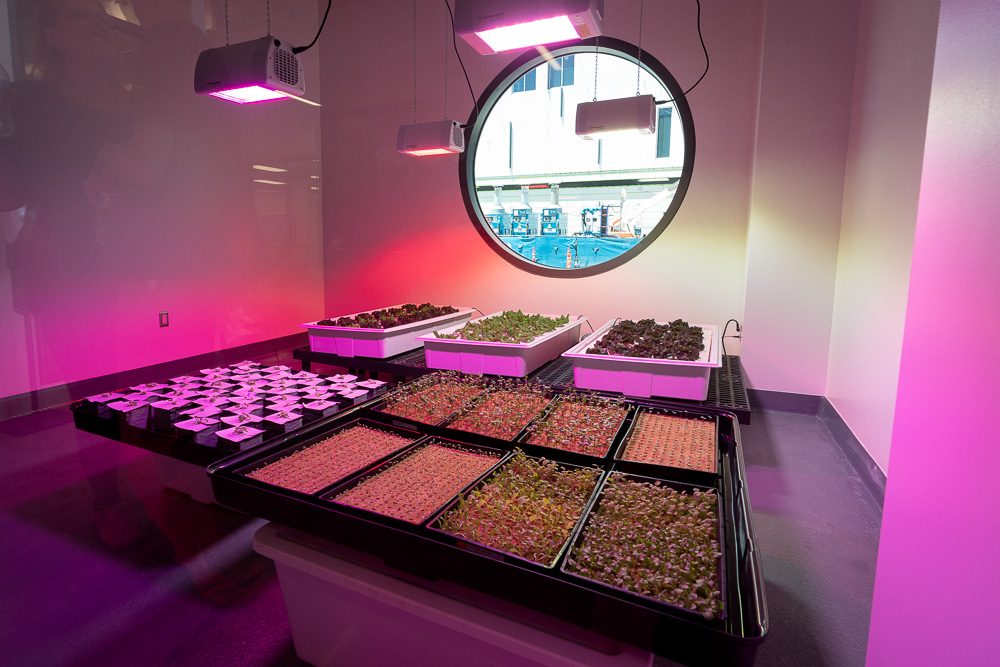
For Cure and Datteri, agriculture is more than a career path, it’s a way of life. “A lot of Colorado’s infrastructure was built around ag,” explained Datteri. Which is why he says it’s so important that newcomers to the state have the opportunity to learn about its roots.
Cure is now a full-time student at CSU, where she is studying soil and crop science with a concentration in plant genetics.
“Through FFA, I have gotten to understand the applied nature of ag, and now at CSU I get to understand the science and research side,” she said.
Still in the middle of his gap year, Datteri is unsure what his future holds knows that it will be in agriculture – likely in policy or law. “This experience has everything to do with shaping my future,” he said.
For now, he is relishing the opportunity to make a difference for students the same way older FFA members did for him.
“There is nothing better than getting to see members and interact on a statewide level. To feel like you can make an impact in someone’s life and give back is amazing,” Datteri said.
This is the heart of Colorado FFA—cultivating leaders who honor the past while shaping a sustainable, inclusive future for agriculture.
That’s the spirit of Boettcher.

